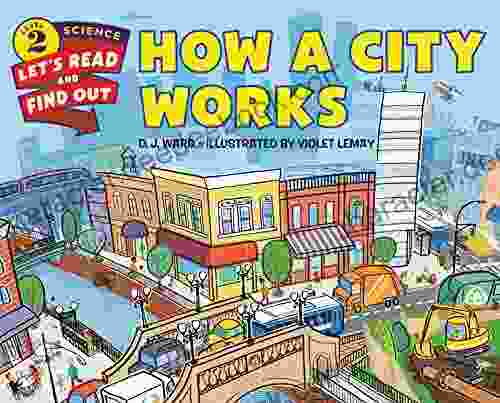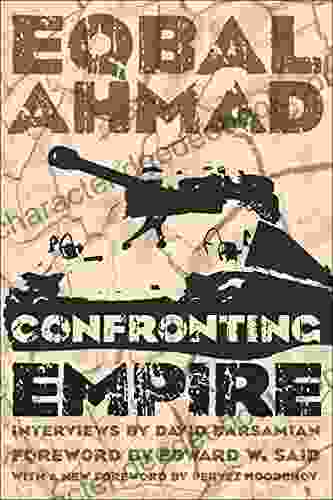Commodification, Capitalist Exploitation, and Political Agency: A Comprehensive Analysis

Commodification and capitalist exploitation are two fundamental features of the modern world. Commodification is the process by which things are turned into commodities, or objects that are bought and sold in the marketplace. Capitalist exploitation is the process by which the owners of capital (i.e., the wealthy) extract profits from the labor of workers. These two processes are closely linked, as commodification creates the conditions for capitalist exploitation, and capitalist exploitation in turn drives the further commodification of society.
Political agency is the ability of individuals and groups to act in order to change their circumstances. It is essential for resisting and transforming exploitative systems. However, political agency is often limited by the structures of commodification and capitalist exploitation. This article will examine the historical roots of commodification and its relationship to capitalism, the various forms of capitalist exploitation, and the role of political agency in resisting and transforming exploitative systems.
Commodification is a relatively new phenomenon in human history. Prior to the rise of capitalism, most people produced goods for their own use or for barter. The concept of buying and selling goods for profit was largely foreign to most pre-capitalist societies.
5 out of 5
| Language | : | English |
| File size | : | 1780 KB |
| Text-to-Speech | : | Enabled |
| Enhanced typesetting | : | Enabled |
| Word Wise | : | Enabled |
| Print length | : | 183 pages |
| Hardcover | : | 226 pages |
| Item Weight | : | 1 pounds |
| Dimensions | : | 6.14 x 9.21 inches |
| Screen Reader | : | Supported |
| X-Ray for textbooks | : | Enabled |
The origins of commodification can be traced to the rise of merchant capitalism in Europe during the late Middle Ages. Merchants began to buy and sell goods not only for their own use, but also for profit. This led to the development of a market economy, in which goods were produced not for use, but for exchange.
The rise of capitalism accelerated the process of commodification. Under capitalism, the production of goods is driven by the profit motive. This leads to the commodification of more and more aspects of life, as businesses seek to turn everything into a commodity that can be bought and sold.
Commodification and capitalism are closely linked. Commodification creates the conditions for capitalist exploitation, and capitalist exploitation in turn drives the further commodification of society.
Commodification creates the conditions for capitalist exploitation by creating a market for labor. When goods are produced for sale, they must be produced by someone. This creates a demand for labor, which can be exploited by capitalists.
Capitalist exploitation in turn drives the further commodification of society. When capitalists exploit workers, they create profits. These profits can be used to invest in new businesses, which in turn creates new markets for goods and services. This leads to the further commodification of society, as more and more things are turned into commodities that can be bought and sold.
There are many different forms of capitalist exploitation. Some of the most common include:
• Wage labor: This is the most common form of capitalist exploitation. It occurs when workers are paid a wage for their labor, but the value of their labor is greater than the wage they receive. The difference between the value of labor and the wage is called surplus value. This surplus value is appropriated by the capitalist, who uses it to make a profit. • Rent: This is another common form of capitalist exploitation. It occurs when landowners charge tenants a fee for the use of their land. This fee is often higher than the cost of maintaining the land, and the difference is appropriated by the landowner as profit. • Interest: This is a form of capitalist exploitation that occurs when lenders charge borrowers a fee for the use of their money. This fee is often higher than the cost of borrowing the money, and the difference is appropriated by the lender as profit. • Imperialism: This is a form of capitalist exploitation that occurs when a powerful country exploits the resources and labor of a weaker country. This can be done through military conquest, economic coercion, or other means.
Political agency is essential for resisting and transforming exploitative systems. However, political agency is often limited by the structures of commodification and capitalist exploitation.
Commodification limits political agency by creating a false sense of choice. When everything is for sale, it can seem like we have no other choice but to participate in the market economy. This can lead to a sense of powerlessness and apathy, which can make it difficult to resist exploitation.
Capitalist exploitation also limits political agency by creating a system of inequality. The wealthy have more power and influence than the poor, and this can make it difficult for the poor to resist exploitation. The wealthy can use their wealth to control the media, the government, and other institutions, and this can make it difficult for the poor to make their voices heard.
Despite these limitations, political agency is still possible. There are many ways to resist and transform exploitative systems, including:
• Organizing: Workers can organize into unions to fight for better wages and working conditions. Tenants can organize into tenant associations to fight for affordable housing. Consumers can organize into cooperatives to buy goods and services from businesses that are not exploitative. • Protesting: People can protest against exploitative policies and practices. Protests can raise awareness of exploitation and put pressure on decision-makers to change their ways. • Lobbying: People can lobby elected officials to pass laws that protect workers, tenants, consumers, and other groups from exploitation. Lobbying can be an effective way to make change, but it is important to be aware of the influence of money in politics. • Voting: People can vote for candidates who support policies that protect workers, tenants, consumers, and other groups from exploitation. Voting is a powerful way to make change, but it is important to be aware of the limitations of electoral politics.
Commodification and capitalist exploitation are two fundamental features of the modern world. These two processes are closely linked, and they have a profound impact on our lives. Commodification creates the conditions for capitalist exploitation, and capitalist exploitation in turn drives the further commodification of society. This process has led to a system of inequality and exploitation that is unsustainable.
Political agency is essential for resisting and transforming exploitative systems. However, political agency is often limited by the structures of commodification and capitalist exploitation. Despite these limitations, political agency is still possible. There are many ways to resist and transform exploitative systems, and it is important to use all of the tools at our disposal.
We must never give up the fight for justice and equality. We must continue to organize, protest, lobby, and vote. We must use our voices to speak out against exploitation and we must use our power to make a difference. Together, we can create a better world for ourselves and for future generations.
5 out of 5
| Language | : | English |
| File size | : | 1780 KB |
| Text-to-Speech | : | Enabled |
| Enhanced typesetting | : | Enabled |
| Word Wise | : | Enabled |
| Print length | : | 183 pages |
| Hardcover | : | 226 pages |
| Item Weight | : | 1 pounds |
| Dimensions | : | 6.14 x 9.21 inches |
| Screen Reader | : | Supported |
| X-Ray for textbooks | : | Enabled |
Do you want to contribute by writing guest posts on this blog?
Please contact us and send us a resume of previous articles that you have written.
 Book
Book Novel
Novel Chapter
Chapter Text
Text Story
Story Genre
Genre Magazine
Magazine Newspaper
Newspaper Paragraph
Paragraph Bookmark
Bookmark Shelf
Shelf Glossary
Glossary Footnote
Footnote Scroll
Scroll Bestseller
Bestseller Biography
Biography Autobiography
Autobiography Memoir
Memoir Encyclopedia
Encyclopedia Dictionary
Dictionary Thesaurus
Thesaurus Narrator
Narrator Character
Character Librarian
Librarian Catalog
Catalog Card Catalog
Card Catalog Borrowing
Borrowing Archives
Archives Study
Study Scholarly
Scholarly Reserve
Reserve Journals
Journals Reading Room
Reading Room Special Collections
Special Collections Interlibrary
Interlibrary Study Group
Study Group Thesis
Thesis Storytelling
Storytelling Book Club
Book Club Theory
Theory Joseph Lumpkin
Joseph Lumpkin Claudia Harper
Claudia Harper Carolyn Forster
Carolyn Forster Patricia Falvey
Patricia Falvey Catalin Pogaci
Catalin Pogaci Ehsan Zaffar
Ehsan Zaffar Konrad Wiesendanger
Konrad Wiesendanger Isa Partsch Bergsohn
Isa Partsch Bergsohn Alec Ross
Alec Ross Ransom Riggs
Ransom Riggs C S Woolley
C S Woolley Paul Le Blanc
Paul Le Blanc Kiini Ibura Salaam
Kiini Ibura Salaam Ania Loomba
Ania Loomba Lorrie Paper
Lorrie Paper Rajagopal
Rajagopal Rebecca U Thorpe
Rebecca U Thorpe Yi Wang
Yi Wang Kate Flavin
Kate Flavin Richard Emmons
Richard Emmons
Light bulbAdvertise smarter! Our strategic ad space ensures maximum exposure. Reserve your spot today!

 Jerome PowellEngage Young Minds with Picture Rhyme Match: A Fun and Educational Game for...
Jerome PowellEngage Young Minds with Picture Rhyme Match: A Fun and Educational Game for... Emanuel BellFollow ·16.8k
Emanuel BellFollow ·16.8k Charles BukowskiFollow ·11.2k
Charles BukowskiFollow ·11.2k Dale MitchellFollow ·14.8k
Dale MitchellFollow ·14.8k Eric HayesFollow ·9.2k
Eric HayesFollow ·9.2k Henry GreenFollow ·3.8k
Henry GreenFollow ·3.8k E.E. CummingsFollow ·17.4k
E.E. CummingsFollow ·17.4k Efrain PowellFollow ·6.9k
Efrain PowellFollow ·6.9k Ralph TurnerFollow ·18.1k
Ralph TurnerFollow ·18.1k

 Ronald Simmons
Ronald SimmonsHow Do Cities Work? Let's Read and Find Out!
Cities are...

 Tom Clancy
Tom Clancy25th European Symposium on Research in Computer Security...
<p>Guildford,...

 Lawrence Bell
Lawrence BellHow We Decide: Cognitive Behavior in Organizations and...
Organizations are...

 E.M. Forster
E.M. ForsterOver 60 Little Masterpieces To Stitch And Wear:...
Embark on a Creative...

 Douglas Foster
Douglas FosterUnveiling the Educational Treasure: CGP KS2 Geography:...
In the ever-evolving educational...
5 out of 5
| Language | : | English |
| File size | : | 1780 KB |
| Text-to-Speech | : | Enabled |
| Enhanced typesetting | : | Enabled |
| Word Wise | : | Enabled |
| Print length | : | 183 pages |
| Hardcover | : | 226 pages |
| Item Weight | : | 1 pounds |
| Dimensions | : | 6.14 x 9.21 inches |
| Screen Reader | : | Supported |
| X-Ray for textbooks | : | Enabled |












